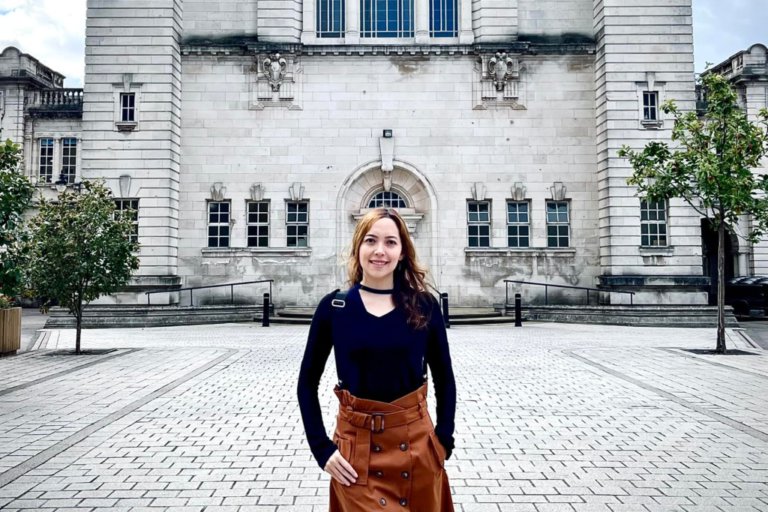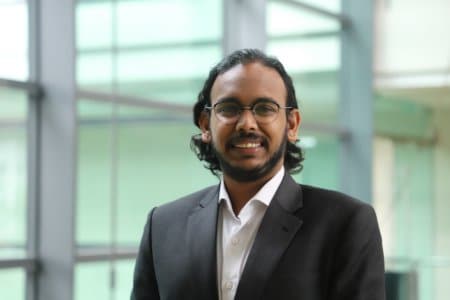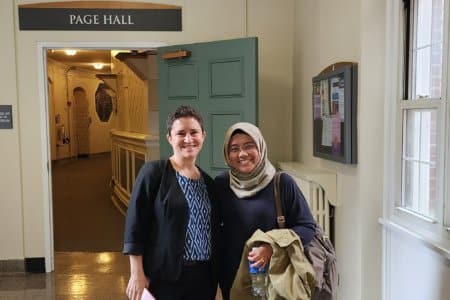
When Amalina Davis saw how her father, who has bipolar disorder (a mental health condition that causes extreme mood swings), was struggling to get holistic treatment in Malaysia, she was distraught.
“As my dad got a bit older, he started having kidney problems. The doctors recommended changing his medication,” she tells Study International. “The medication that he was taking for bipolar is called lithium, which was affecting his kidneys. When we changed it, he experienced a psychotic attack.”
Davis’s dad had to be hospitalised. This was when she saw the huge gaps in Malaysia’s mental health system. There were not enough psychiatrists, the treatment plans pushed only medications and not therapy, and support staff were not trained to help patients rejoin their communities.
Fortunately, her dad made a full recovery in Malaysia. She saw how an excellent mental health system could change lives, break stigmas, and impact society.
Transforming the system would require hours of study, inspection, and research. Davis knew that to contribute to such a crucial task, she needed to improve her knowledge of psychology. That prompted her to pursue a Master of Science (MSc) in Psychology at Cardiff University.

Before Davis (pictured on the right) studied for her MSc in Psychology, she worked with Sime Darby and Thrive Well, a community mental health social enterprise in Malaysia. Source: Amalina Davis
Studying at Cardiff University: An intense and rewarding experience
The MSc is a conversion programme that allows students like Davis to start their careers in psychology. What drew her to pick this specific programme was its 12-week placement.
“They have partnerships with the National Health Service (which is the equivalent to the Ministry of Health in Malaysia),” Davis shares. “[If you wanted] to do research psychology, they have partnerships with universities. They have partnerships with educational psychologists, so you work with schools.”
The coursework was heavy. “It feels like we are doing a three-year psychology degree into a one-year master’s,” she says.
Still, Davis presses on, buoyed by “extremely passionate” peers and a high level of engagement between the students and lecturers.

Apart from graduating with a double degree in chemical engineering and business management from UNSW Sydney, Davis went on a student exchange with the Universitat Pompeu Fabra in Barcelona. Source: Amalina Davis
A seasoned international student
Davis secured a scholarship with Sime Darby (a Malaysian company with businesses in plantations, industrial equipment, automotive, property, and energy) to study chemical engineering and business management from UNSW Sydney. She also had the chance to go on a student exchange with the Universitat Pompeu Fabra in Barcelona.
Having had these experiences, the MSc student instantly felt at home as an international student — even though it has been approximately seven years since she completed her undergraduate studies.
Being the more mature one now, she tries to comfort other Malaysian undergraduate students living together with her in an all-female residence hall. “Some of them really miss home. I tried to be that pillar of comfort, their big sister, and give them advice,” she says.
“Know your options to prepare for your future”
Psychology is a big field. As such, Davis advises students to understand the areas they want to explore. “It’s a very flexible education that can take you anywhere — from working in hospitals, going into [human resource], or venturing into consulting,” she says.
Davis adds: “Having a degree in psychology is only the first step. If you want to be a clinical psychologist, you need to do a master’s. If you want to be an industrial [or] clinical psychologist, you need to do a master’s or [acquire a] certification. Knowing that from the beginning will help you plan your journey because it might be a long one.”










